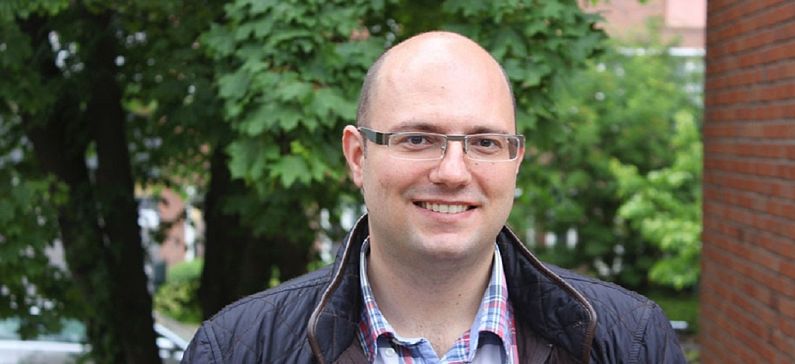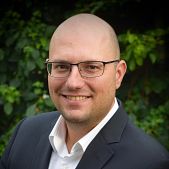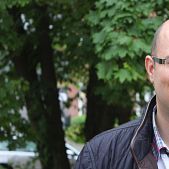
Designs safer nanomaterials
Dr. Georgios A. Sotiriou is an Assistant Professor in the Department of Microbiology, Tumor and Cell Biology at Karolinska Institutet (Birgitta Henriques-Normark Unit) focusing on nanobiotechnology and biomaterial technology.
In particular his research focuses on developing nanobiomaterials, tools and methods for medicine using core engineering sciences. The key focus lies on flame aerosol engineering of smart nanoscale materials and devices for biomedical applications.
He is one the six Greek researchers among the 406 European researchers that will be supported by the European Research Council (ERC) with grants to continue their research. ERC’s purpose is to support talented early-career scientists, who have already produced excellent supervised work, into becoming independent researchers and the research leaders of tomorrow. The funding, worth €605 million in total and up to €1.5 million per grant, will enable them to set up their own research teams and pursue ground-breaking ideas. In addition to that Georgios Sotiriou, who is the first KI grant recipient working within the field of physical science and engineering, receives EUR 312,500 to cover equipment costs.
The aim of his ERC project, PROMETHEUS, is to employ flame nanoengineering and develop the next generation of antibacterial medical devices to fight infections and antimicrobial resistance. Antimicrobial resistance constitutes one of the most serious public health threats with estimations to become the leading cause of human deaths in 30 years.
“I am extremely delighted and honored to receive this grant that will enable me to work on the exciting field of nanoengineering for medicine and try to tackle tomorrow’s global health challenges”, says Georgios Sotiriou.
The approach of his research is multidisciplinary, combining expertise from material and process engineering, bioengineering and health sciences. This allows for the design of biomaterials and devices that exhibit the desired functionality in applications ranging from diagnostics (biosensors) to therapeutic interventions.
In 2006 he received his Diploma in Applied Physics from National Technical University of Athens. He obtained his PhD from the Particle Technology Laboratory (Prof. Pratsinis group) at ETH Zurich, Switzerland (2011) and carried out postdoctoral research stays in Harvard University (2013-2015, Center for Nanotechnology and Nanotoxicology, Prof. Demokritou group, and currently Visiting Scientist there) and ETH Zurich (2015-2016, Drug Formulation and Delivery Lab, Prof. Leroux group) before joining MTC.
His research has been recognized internationally by several awards including the 2011 AIChE Bionanotechnology Graduate Student award, the 2012 Best PhD Thesis Award from the Swiss Chemical Society, the 2012 ETH Medal for outstanding Dissertation and the 2013 Hilti Award for Innovative Research and the 2017 ERC Starting Grant.
Read also:
The European Research Council supports with grants 6 Greek researchers












